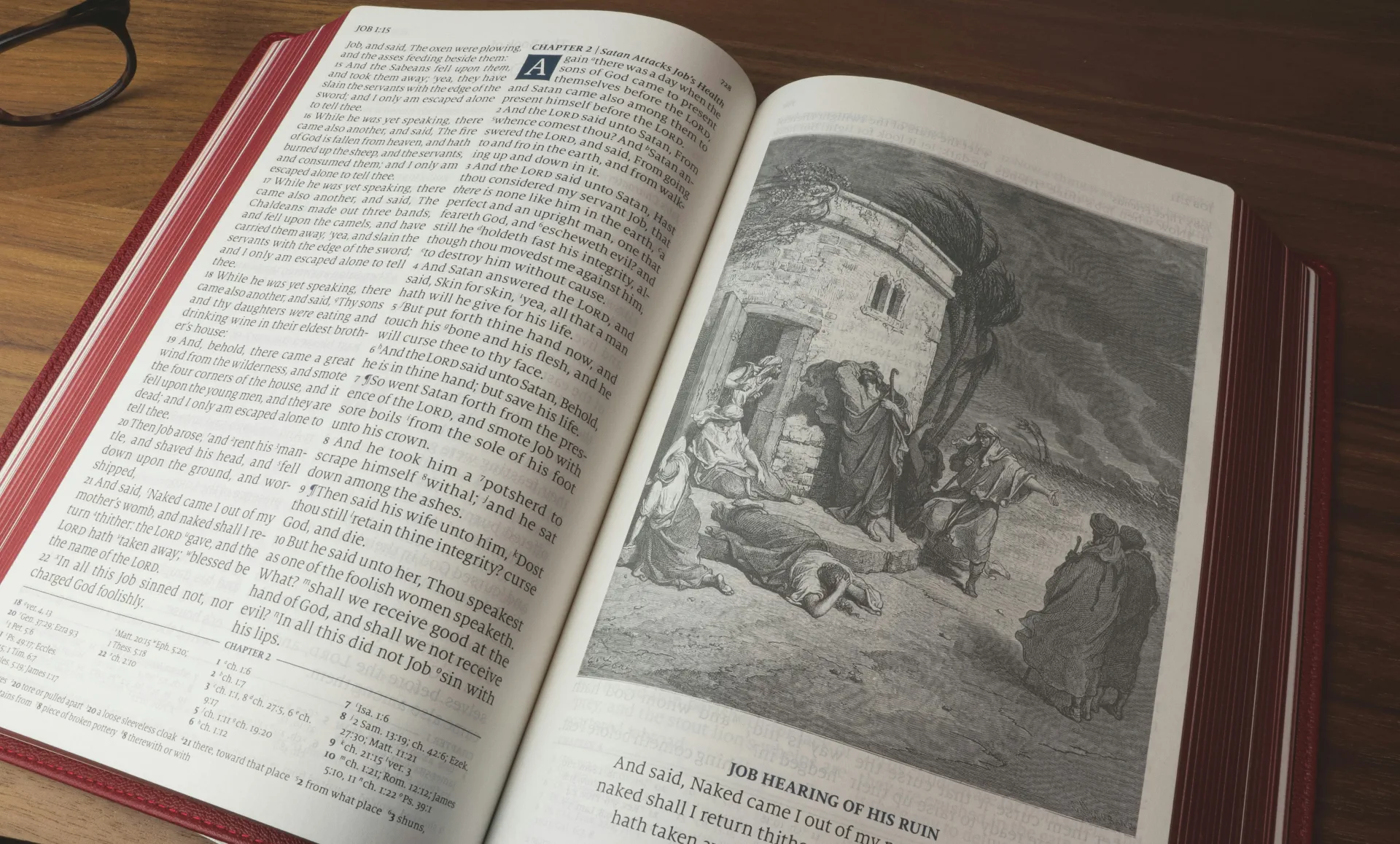Introduction
I have heard many times someone commenting on an event or tragedy saying it “must have been in God’s plan.” Can we say that the loving God of the universe, sovereign in justice and complete in wisdom plans for individuals to experience misfortune and tragedy? Does that make Him capricious? If you are a Christian, you might find these thoughts or questions heretical. If you are nonreligious, you may find these situations demonstrate a capricious God. They serve as justification for your belief that He is not worthy of your love and devotion. Either way – we need to be honest and seek truth in our understanding of God and His sovereignty.
Capriciousness
So, what about Capriciousness? What is it and how does it fit into the various world-views of people today? Capriciousness refers to acting on a whim, changing your mind suddenly without much rhyme or reason. It’s when someone’s behavior is erratic and unpredictable, not following any consistent logic or principles. Their decisions seem almost random and arbitrary, made impulsively without considering consequences.
In everyday life, we see capriciousness in people who are fickle and mercurial. One minute they want one thing, the next minute they’ve completely changed their minds. Their moods and desires shift rapidly, making it hard for others to know how to act around them.
When it comes to beliefs about divine beings, capriciousness gets more complicated. In many faiths, the actions of gods are seen as serving a higher, unknowable purpose – even if they seem capricious or inexplicable to us mere mortals. What appears whimsical could actually be part of a grand cosmic plan beyond our comprehension.
When you consider mythologies, especially those of early civilizations, with multiple gods of varying moralities, you will find some portrayed as capricious tricksters – acting solely out of self-interest or amusement, unconcerned with principles of good and evil. Their behavior has no greater meaning other than indulging their own passing fancies.
In the traditions such as Christianity and other monotheistic religions, with an all-knowing, all-good deity, capriciousness is found to be out of character for such a being. A truly benevolent God’s actions, no matter how inscrutable, are understood to follow a wise and just mastermind, not mere capricious impulses. We may not understand the events that such a God permits, but we accept that there is a higher motive and plan.

Considering demons or evil spirits, which many faiths ascribe as being real creatures, they are often described as capricious, suggesting they act on malicious whims to deceive and corrupt, guided by no higher purpose than creating chaos and misery on cruel impulses.
Whether something is deemed capricious really depends on your viewpoint about the motivations behind the behavior – is it arbitrary or does it serve an inscrutable deeper purpose? A whimsical change of heart or a calculated action beyond our mortal understanding?
The Will of God
A deistic approach to understanding misfortune and tragedy can be better understood by probing the will of God. Deists, Christians, Muslims, and Jews all accept that there is one God (although they disagree on who that God is). In their traditions and doctrines, they understand God as all powerful and endowed with a will from which He takes actions and executes His sovereign plan. While each of these faiths see their relationship to God in different ways, they all recognize and accept this point. What’s more we understand that God’s will is viewed as exercised in two primary ways: His active (or decreed) will and His passive (or permissive) will. These concepts help explain how God interacts with the world and how His sovereignty and human free will can coexist.
This is especially true in the evangelical Christian perspective of God which we will be focusing on throughout the remainder of this article. The evangelical Christian God is YHWH (Yahweh) also recognized by Jewish people as the Lord of the Torah. Both religion’s God is all powerful, all knowing, all loving and merciful, Eternal, Sovereign, Just and Righteous. Of course this is because they are the same God.
It is difficult to attribute to a God like this the random and seemingly unjust things that happen in our world. War, torture, hate, death, and violence against the innocent and young. We come back to the initial question – how do things like this fit into the plan of a God like this? Does He even have a plan. To better understand – let’s examine these two facets of God’s will – his active will and his passive will.
Active (Decreed) Will
According to Christian beliefs, God doesn’t just sit back and watch the world go by. He is an active, engaged participant in creation and the affairs of humans. His active will refers to all the things He directly makes happen through His infinite power and sovereignty.
This active will is on full display at the very beginning in Genesis when God spoke the universe into existence – “Let there be light” (Genesis 1:3). It’s His intentional, unstoppable hand at work shaping reality according to His decree.

His active will was also at work when God intervened in human history by sending His Son Jesus Christ to Earth to redeem fallen humanity. As John 3:16 beautifully states, “For God so loved the world that He gave His one and only Son…”
And even today, Christians believe God’s active will continues through miracles, divine interventions, answering of prayers, and supernatural occurrences that cannot be explained by mere chance or human ability alone. God’s active will is at work today in the transformative work of the Holy Spirit in a person’s life, leading them to repentance and faith in Jesus Christ. This is something God actively brings about in someone’s heart and life (John 6:44).
Ultimately, God’s active will cannot be prevented or overridden because it flows directly from His sovereign authority as the all-powerful Creator. As the prophet Isaiah declared, “My counsel shall stand, and I will accomplish all my purpose” (Isaiah 46:10). This viewpoint tells us that what God decrees – what He chooses to do will be done.
From an evangelical viewpoint, the active will represents God’s hands-on role in choreographing history, not just guiding but directly causing events to unfold so that they conform to His intended goals. He decrees and those things are done bringing glory and honor to Him alone.
Passive (Permissive) Will
While God’s active will represents His direct interventions in the world, Christians also believe in what’s known as God’s passive or permissive will. This describes the things God allows to happen, even if they aren’t part of His desired plan.
As perfect as God is, He has also gifted human beings with free will – the ability to make choices, even choices that go against His express moral instructions. Rather than a heavenly puppet master controlling every move, God permits people to exercise this free will. This is a requirement for the creature to love the creator of their own choice.
If we could not choose of our own accord to love God then we would be nothing more than robots or puppets. We would love because He compels us to love. This would not bring joy to God, it would not allow Him to demonstrate true love. So we have the free and uncoerced ability to choose to love God to choose to reject God. As a result we are also free to chose to lie, sin, hate and do many other evil things.
God is ambivalent or uninvolved when people mess up. Scripture makes it clear that human sin and rebellion grieve God’s heart (Genesis 6:6, Ephesians 4:30). In His wisdom, He permits moral failures and suffering to occur, using them as a backdrop to display His grace, mercy and redemptive purposes.
Just look at the biblical story of the sin of David. According to 2 Samuel 11, King David abused his power by committing adultery with Bathsheba and then having her husband Uriah killed to cover it up. These were egregious moral failings that violated God’s commands.
Yet rather than intervening directly, God permitted David’s choices of free will to unfold. He allowed David’s sinful actions and the painful consequences – Bathsheba’s pregnancy, Uriah’s death, Nathan’s confrontation of David and the death of his son through Bathsheba.
This doesn’t mean God was idle or approving. Scripture says, “the thing David had done displeased the Lord” (2 Samuel 11:27). But in His mysterious wisdom, God let human free will run its course, no doubt to humble David and for larger redemptive purposes.

Ultimately, God used this dark episode to manifest His mercy, forgiveness, and covenant faithfulness. Despite David’s horrific sins, God did not revoke his kingship but established an eternal dynastic promise through his descendant line (2 Samuel 7).
So, from an evangelical view, in permitting David’s transgressions, God demonstrated His passive will – allowing humans to freely choose good or evil, while using those free choices as part of His grand plan of salvation and redemption for His people.
God didn’t cause the sin, but He incorporated the fallout into His unstoppable narrative of mercy and grace. A powerful illustration of God’s permissive will coexisting alongside human free will and moral accountability.
From an evangelical view, God’s passive will involve His allowance of moral failure and human free choices, not because He desires sin or suffering, but because He works within those realities to bring about higher purposes in miraculous ways that reveal His eternal love and wisdom.
In another powerful biblical example of God’s passive will at work is the narrative of Joseph found in Genesis 37-50. Through a series of traumatic events, we see how God permitted human sin and evil intentions and yet used them as part of His sovereign plan.
Joseph’s own brothers were consumed by jealousy and hatred, conspiring to sell him into Egyptian slavery. This was an abhorrent moral failing on their part, a sin against their brother and God. Yet God allowed their deplorable choices to play out.
Years later, after being falsely accused and imprisoned and finally ascending to the second most powerful person in Egypt, Joseph reiterates to his brothers, “You intended to harm me, but God intended it for good to accomplish what is now being done, the saving of many lives” (Genesis 50:20).
What human beings meant for evil and harm, God permissively willed into a grand redemptive movement. Joseph’s suffering and trials became the very means through which God positioned him as Pharaoh’s advisor, storing up grain reserves to provide for the coming famine that saved many lives, including Joseph’s own family.
So, despite the sin, deceit, and trauma Joseph endured, God’s passive will incorporate those human decisions into His unstoppable purposes. Humans exercised their morally tainted free will, while God used their choices in service of a greater good that could not have been achieved apart from that affliction.
This sobering account demonstrates that God has the wisdom and power to weave even the darkest human actions into the unfolding tapestry of His sovereign will – bringing hope, deliverance, and redemption in astonishing ways that reveal His ultimate intentions for good.
Does God Have a Plan That Includes Tragedy?
When people refer to events happening as part of “the plan of God,” especially in contexts involving tragedy or loss, they are often speaking within the framework of God’s passive (permissive) will – discussed above – albeit within the overarching context of His sovereign plan. This understanding accepts that God allows events to occur—even those involving suffering, war, and the untimely death of innocent individuals—without directly causing them. However, it’s crucial to note that within the Christian perspective, such events are also seen as falling under God’s sovereignty, where even the outcomes of what He permits are ultimately used by God to fulfill His purposes, which are ultimately good and just, even if such reasons are not immediately apparent to us.

Christians approach the question of suffering, evil, and God’s sovereignty through several key biblical principles:
God’s Sovereignty and Human Sin: The Bible affirms God’s complete sovereignty and control over all creation (Psalm 115:3). Yet, it also teaches about the reality of human sin and its consequences (Romans 5:12). The presence of evil and suffering in the world is a direct result of the fall of humanity into sin, which has corrupted the good creation God made.
God’s Redemptive Purposes: Christians believe that God is able to redeem and bring good out of even the worst circumstances. This is most clearly demonstrated in the death and resurrection of Jesus Christ, which brought salvation out of an act of profound injustice and suffering (Acts 2:23-24). Romans 8:28 supports this view: “And we know that in all things God works for the good of those who love him, who have been called according to his purpose.”
God’s Ultimate Justice: While the presence of evil and suffering is a reality in this fallen world, Christians hold to the promise of ultimate justice and restoration. Revelation 21:4 offers a vision of this future: “He will wipe every tear from their eyes. There will be no more death’ or mourning or crying or pain, for the old order of things has passed away.”
Mystery of God’s Will: Christians also acknowledge the mystery of God’s will. Deuteronomy 29:29 states, “The secret things belong to the LORD our God, but the things revealed belong to us and to our children forever, that we may follow all the words of this law.” This verse suggests that there are aspects of God’s plan and purposes that are beyond human understanding.
How Can We Find Peace in Suffering
When we as Christian’s face evils, sufferings and tragedies that seem senseless and unjust from our limited human perspective, it can deeply challenge our faith. In those darkest moments of pain and confusion, how can we find solace?
I think part of the answer lies in holding two paradoxical truths in tension – acknowledging the reality of human free will and moral evil in the world, while also trusting in God’s sovereign wisdom and goodness that transcends our finite understanding.
Scripture is clear that moral evil exists because God has granted humans the ability to make free choices, including rebellious choices against His good and perfect will. The brokenness we see all around us – violence, oppression, hatred, abuse – flows from human sin dating back to the Fall. God permits this because He doesn’t override our free will, as difficult as that is to accept.
And yet, the Bible also affirms that nothing happens outside of God’s ultimate authority and redemptive purposes. As Joseph told his brothers who sold him into slavery, “You meant evil against me, but God meant it for good” (Genesis 50:20). God somehow incorporates and redeems even humanity’s most deplorable actions as part of His grand story of restoration.
So, when confronted with inexplicable evils and afflictions in our own lives, we can take solace that our suffering is not random or beyond redemption in God’s eyes. He is intimately acquainted with our deepest pains (Psalm 56:8). Though we cannot understand His higher vantage point, we can trust His character as a loving Father who promises to work all things together for good (Romans 8:28).

Sometimes this is not enough though. Consider the parents who have just had their beautiful and lovely child taken from them in an act of senseless and brutal savagery. How do we tell them that Romans 8:28 will heal them? They are feeling the trauma of Job, having lost all.
A side note about the suffering of the parent at the loss of their child. I originally wrote this article in February of 2024. I was processing the recent loss of my father to a long time battle with Parkinson’s and dementia. Little did I know that two months later I would be that suffering parent. On April 23rd of 2024 our beautiful and full of life daughter was unexpectantly taken home to be with the Lord. I can confirm that the feelings of anger and questioning of the goodness of God darkened my life. I quit writing for almost a year, but I am back writing again. My newest articles deal with the personal and profound tragety in our lives. Please read about them in the “Trusting God in the Storm” series.
The death of a child is utterly devastating – an agonizing rending of a parent’s heart and soul. It violates our innate sense that the natural order should be for children to bury their parents, not the other way around. In that profound darkness, glib spiritual clichés provide little comfort. Anger at God’s apparent absence or cruelty is an understandable reaction.
Yet the biblical narratives reveal that even in the most harrowing suffering, God’s people have found profound lament to be a pathway to honest wrestling with Him. From Job’s anguished cries to David’s gut-wrenching mourning over his children to Christ’s own agonizing anguish in Gethsemane – we see a spiritual tradition of bringing our rawest pain directly before the Almighty.
There is a sacred dignity in this kind of real, visceral lament. It acknowledges the true depths of our agony while also clinging to God as the only permanent refuge in the midst of temporal calamity. As the Psalmist says, “Put your hope in God, for I will yet praise him, my Savior and my God” (Psalm 42:11).
For the grieving parent, solace may ultimately emerge from the realization that God’s own Son tasted the bitterness of death. On the cross, Christ drank the full cup of desolation, alienation from the Father, and unfair suffering. He embraced the ultimate lament on our behalf.
While we may never fully understand in this life, we can perhaps find solidarity and resonance with the Creator who agonized over His own child’s demise. He is intimately acquainted with our sorrow in a way that imbues it with profound meaning, even as it devastates.
In those times when the worst tragedies rob us of peace, we are called to an anguished hope. Let’s permit ourselves to lean into lament as an act of vulnerable faith. To shake our fists at heaven if we must, but to keep wrestling with the God who ultimately overcame the sting of death through resurrection. It’s a long dark night, but the vision of life’s dawn remains.
What We Can Learn from Job
The story of Job provides some profound insights for those grappling with immense personal tragedy and loss, especially the death of children. A few key lessons we can take:
- It’s okay to lament and question God. After losing his children, wealth, and health, Job didn’t stoically accept his circumstances. He cried out in raw anguish – “Why did I not perish at birth?” (Job 3:11). He boldly questioned God’s justice and purposes. Yet God didn’t rebuke Job for this honest expression of pain. There is sacred space to voice our doubts and anger when suffering seems unfair.
- Suffering may be what we reap for personal sin but Job shows us this is not always the case. Job’s friends insisted his tragedies must be punishment for hidden wickedness. But God ultimately vindicated Job, showing that sometimes inexplicable suffering simply cannot be easily explained or fit into tidy spiritual formulas. Grieving people need compassion, not accusations.
- God is present even when He seems silent. For chapters on end, Job heard no response from Heaven. He felt God was hiding from him. Yet in His own time, God finally spoke, revealing His supreme power and wisdom that transcends human understanding. Even when God seems eerily absent, He has not abandoned His children.
- Our view is limited; we see only part of the picture. Job never learned the cosmic backdrop that opened the story – God’s interaction with Satan in the throne room of Heaven. All he saw was outrageous disaster striking his life. But God was working out a greater drama behind the scenes that Job couldn’t fully perceive. When shrouded in personal darkness, we must humbly acknowledge the limitations of our perspective.
- Restoration and new life can emerge from the ashes. After patiently enduring, Job witnessed God reversing his calamity and doubling his blessings, including being given new children (Job 42). This doesn’t erase the scars, but it does point toward God’s commitment to bring surprising life out of seemingly terminal devastation for those who hold fast to faith.
The Final Word
The question of how to view tragedy through a spiritual lens is a profound struggle. As Christians, we believe God is sovereign and ultimately in control of the universe. However, ascribing all sufferings and evils directly to His intentional plan risks mischaracterizing His perfectly good and loving nature.
We must make a critical distinction between God’s active will – what He directly causes and decrees – versus His passive or permissive will. Tragedies are not necessarily His desired plan or active intention. Instead, God has granted humans free will, allowing us the ability to make choices that result in sin, immorality, and subsequent suffering which has entered the world.

From the accounts of Job to the story of Joseph to David’s own failings, Scripture depicts God permitting human free will to take its course, even when it leads to immense personal pain and difficulty. These may not be what God preferentially wants, but what He allows to unfold as part of a bigger drama of restoration which we often cannot fully comprehend.
And yet, God does not abandon us to randomness. Somehow, through ways that are beyond our limited perspectives, He incorporates humanity’s darkest actions and their fallout into His sovereign governance of all creation. As Joseph said, what others intended for evil against him, “God meant it for good” (Genesis 50:20).
While tragedies may not be God’s original desired will, they inevitably fall under the sovereign management of the world He created. He does not leave them as meaningless detours but weaves them into His unstoppable narrative of redemption – bringing life from death, light from darkness. We may not fully appreciate this working of God this side of eternity we can be assured it is never the act of a capriciousness God.
This does not make the agonies any less brutal. We see biblical examples of God’s people meeting tragedy with visceral anger, doubt, and spiritual wrestling. Grief is not sinful; lament is a sacred privilege before the Almighty. We can take comfort in the realization that our Creator joined us in our affliction through the life and death of Christ. On the cross, God drank the full cup of desolation and death, so that He could overcome it through resurrection.
Learning More
Jerry Bridges – “Trusting God”
D.A. Carson – “The Sovereignty of God”
Edited by John Piper and Justin Taylor – “Suffering and the Sovereignty of God”
Timothy Keller – “Walking with God through Pain and Suffering”



